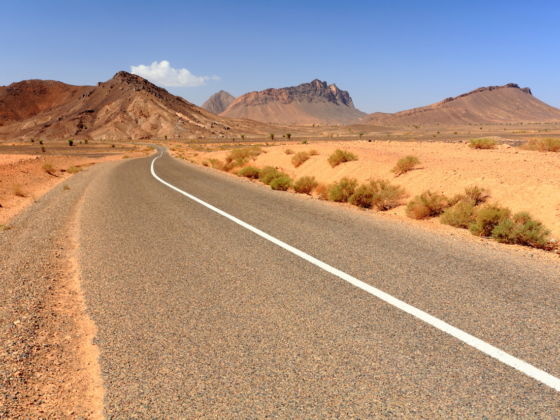It’s about 250 kilometers from Merzouga, a popular tourist destination in the Sahara Desert on the Moroccan side of the Algerian border, to Boumalne Dades, a town in the middle of Morocco with a lovely little hotel. The drive takes about four hours.
Somewhere around hour one — 188 kilometers away from the hotel where we had a reservation, 400 kilometers from the nearest major city, and an unknown distance from the nearest English speaker — our car started to break down. On a bleak stretch of Moroccan desert road, my girlfriend and I suddenly felt very alone.
